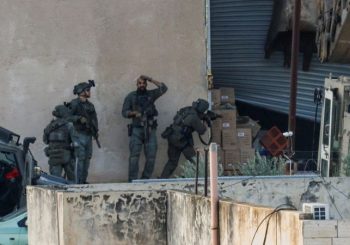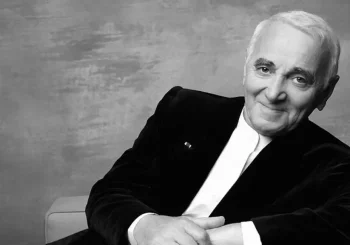By Mohamed Khairat, Editor-in-Chief, EgyptianStreets.com
One evening between classes, nearly nine years ago, Karim Roshdy stumbled upon a group of his schoolmates huddled on the outskirts of their private school in Cairo. It was that evening that the 16-year-old school boy had his first puff of hash. “It was reinvigorating, exciting, and new,” he says.
But merely five minutes later, a security guard interrupted their cloud of smoke with a torrent of shouts, threatening to report the seven teenagers to the school’s principal. “I just froze and was on the verge of breaking down in panic,” says Karim. “Surprisingly, my friend calmly got out a 50 pound note [about $7] and gave it to the man who just smiled and walked away.”
Today, as a 25-year-old university graduate, he has a completely different perspective on the use of hashish. “It is poisoning our youth,” explains Karim, who stopped smoking weed at the age of 21. “Not only is it a waste of money but it also impacts your relationships…you end up mixing your lies with the truth.”
According to recent reports released by Egypt’s National Council for Battling Addiction (NCBA), the use of drugs by people aged 15 and over has jumped from 6.4 percent to 30 percent since 2011, with weed and heroin being the most popular drugs used.
Director of the NCBA, Amr Othman, says the security vacuum in Egypt has been the driving force behind the surge in drug use. “The deterioration of Egypt’s policing after the revolution has increased both the supply of drugs and the demand for them.”
Karim agrees that the security vacuum has allowed easier access to drugs. “Drugs of all sorts are now very accessible. On certain highways, drug dealers stand on the side with some sort of light-signal to indicate to drivers that they can buy drugs there.”
At one point, even Tahrir Square, the epicentre of Egypt’s historic revolution, had developed a dubious and dangerous reputation. Until recently when security forces took complete control of the square, it had become an ungoverned little town in the middle of Cairo.
“The square had no longer been filled with revolutionaries, but with drug dealers and other criminals,” says Karim. “It had a dark side that many Egyptians and the police refused to recognize.”
A government representative, who wished to remain anonymous, however blames deep-rooted socio-economic factors for the rise of a drug culture.
“The youth are frustrated and depressed with the lack of [employment] opportunities…the drugs act as an escape for them,” concedes the government representative, noting that 77 percent of the unemployed are between the ages of 15 and 29. “Tahrir Square was a safe haven for many who have simply given up, whether they were street children selling tissue packets or drug addicts.”
However, according to the NCBA, 54 percent of drug users live with their parents.
“The peer pressure to use drugs when you’re younger is very hard to avoid…and so you have school children using [drugs]” says Karim, adding that the media has helped amplify peer pressure. “Protagonists in many popular [Egyptian] films are regularly portrayed as hash-smoking, drug-using thugs that steal and murder…these images influence you when you are young.”
Amir Hashem, 14, says he started smoking hashish at the age of 13 because it made him more popular. “My friends now come to me to smoke…it is cool…sometimes even girls come as well” says the private school student, boasting about how he smokes weed right outside the school gates. “My driver gets it for us and we just smoke it outside the gates or at home.”
Asked whether he was afraid his parents would find out, Amir simply chuckled and said they are oblivious. “My dad once found my stash. I told him it wasn’t mine and that was it…even my parents do not care!”
Mr Othman says that the lack of communication between parents and their children is hampering anti-drug campaigns. “There is absolutely no communication…but there has to be as the family is the first cell responsible.”
However, that is not the only obstacle that the NCBA’s anti-drug campaigns face. With an annual budget of 6 million pounds, the NCBA is unable to adequately fund and monitor rehabilitation centers. In February 2013, several rehabilitation centers were shut down after videos emerged of patients being tortured by staff members.
Nevertheless, the NCBA has launched several programs, including a 24-hour hotline, to provide counseling, treatment, and rehabilitation free of charge. With the support of nearly 23,000 young volunteers, the NCBA has also been coordinating with charities and providing information to communities across Egypt on the dangers of drug use.
Karim is convinced that with greater support from the Egyptian populace, Egypt will overcome this drug crisis. “At the end of the day, by working together, we are the ones that can help build a better future for our youth.”
Due to the sensitivity of the issue, Karim Roshdy and Amir Hashem are both aliases







Comments (3)
This article is quite a disappointment; I expected to read about the drug problem which is rampant among the truck and microbus drivers as well as among the poorer segments of society which are usually high on “Bango” and similar cheap drugs.
Instead I read: “My driver gets it for us and we just smoke it outside the gates or at home.” Sorry, but that’s the kind of nouveau riche little brat which is NOT representative of the Egyptian society as the ones who can afford the exorbitant fees of private schools as well as rehabilitation centers are an absolute minority within the society.
Really disappointing as the real problem(s) get once more burried “under the rug”!
Reblogged this on Oyia Brown.